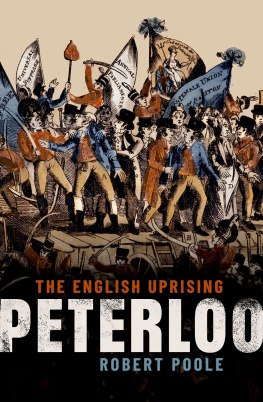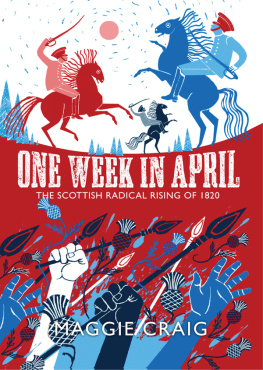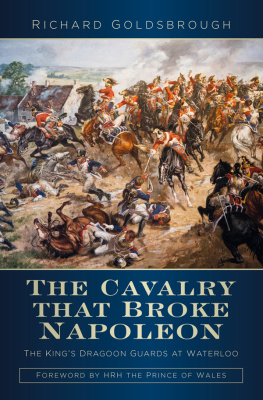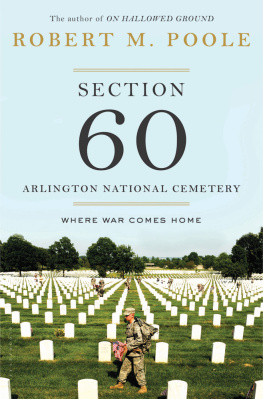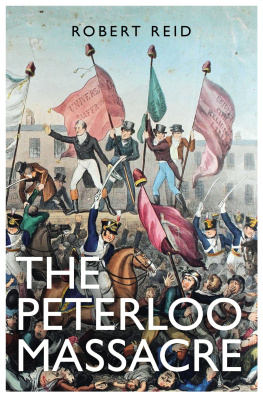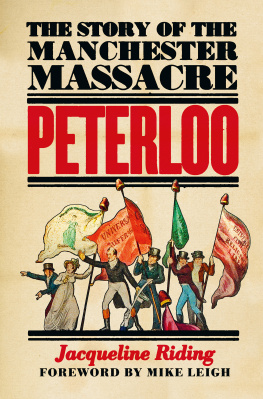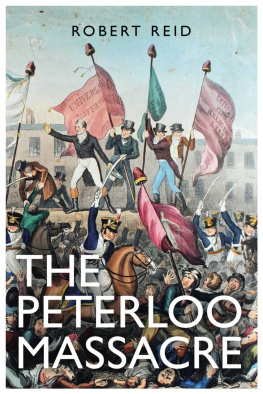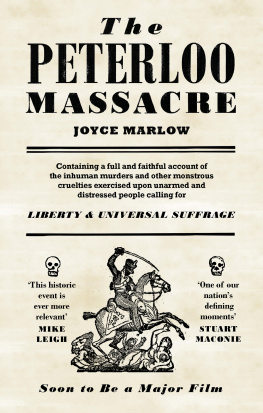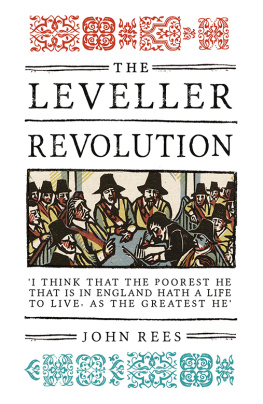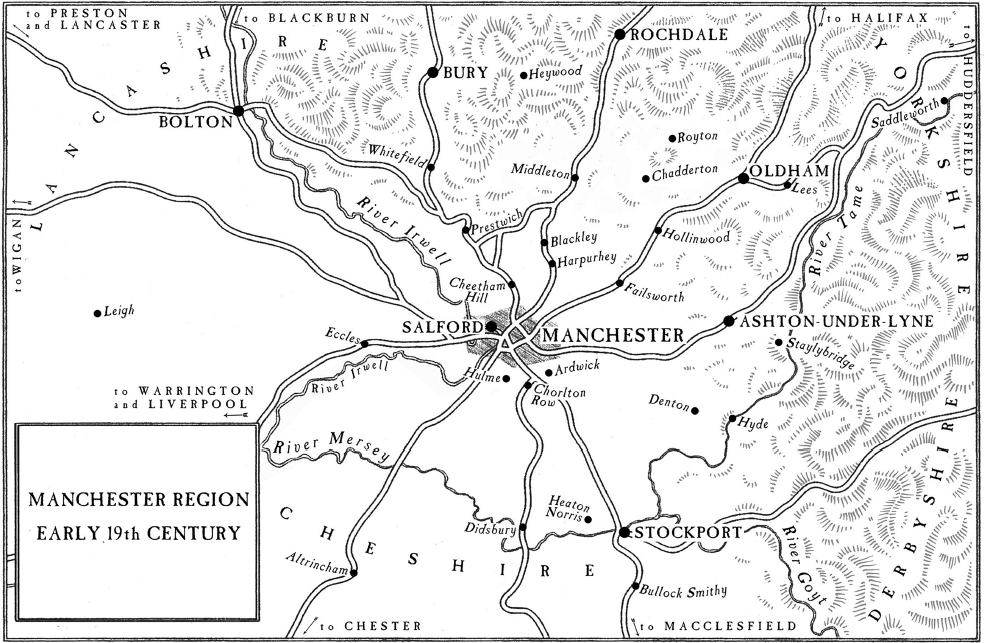Oxford University Press is a department of the University of Oxford. It furthers the Universitys objective of excellence in research, scholarship, and education by publishing worldwide. Oxford is a registered trade mark of Oxford University Press in the UK and in certain other countries
All rights reserved. No part of this publication may be reproduced, stored in a retrieval system, or transmitted, in any form or by any means, without the prior permission in writing of Oxford University Press, or as expressly permitted by law, by licence or under terms agreed with the appropriate reprographics rights organization. Enquiries concerning reproduction outside the scope of the above should be sent to the Rights Department, Oxford University Press, at the address above
You must not circulate this work in any other form and you must impose this same condition on any acquirer
Printed and bound in Great Britain by Clays Ltd, Elcograf S.p.A.
Links to third party websites are provided by Oxford in good faith and for information only. Oxford disclaims any responsibility for the materials contained in any third party website referenced in this work.
Acknowledgements
This book has taken too long to write, but it has not been for want of friendly support. My first thanks are due to Malcolm Chase and Katrina Navickas, whose fine writings, scholarly generosity, and good company over many years have provided consistent encouragement and inspiration. I would also like to acknowledge the late Donald Read. His own book on Peterloo was published the year after I was born, and he has died the year before mine appears. In his retirement in Lancashire he supported further inquiries into Peterloo, not least by passing on to me the only complete set of the Manchester Observer, now reunited with the rest of the A. P. Wadsworth collection in the John Rylands Library and available online for all to read as part of the Peterloo collection.
For help, expertise, and encouragement of various kinds over many years I am grateful to Katy Ashton, Sean Baggaley, Elizabeth and Stewart Bailey, Hannah Barker, Neil Barrow, John Baxter, Erin Beeston, John Belchem, Nathan Bend, Fabrice Bensimon, Kevin Bolton, Richard Bond, Chris Burgess, Arthur Burns, Michael Bush, Sid Calderbank, Jacqui Carroll, Lynette Cawthra, Arthur Chapman, Tim Cockitt, Penelope Corfield, Joe Cozens, Jerome DeGroot, Bob Dobson, Eileen Earnshaw, Paul Edwards, John Gardner, Richard Gaunt, Robert Glen, Amanda Goodrich, Sheila Goodyear, David Govier, Kitty Greenwood, Tim Harris, Karen Heatley, Michael Higgins, Andrew Hobbs, John Hodgson, Craig Horner, Roger Ivens, Paul Jelen, Bill Johnson, Harry Johnson, Neville Kirk, Kazuhiko Kondo, Mike Leigh, Sarah Lloyd, Michael Lobban, Alice Lock, Gillian Lonergan, Elsie Lowe, Nick Mansfield, Janette Martin, Ruth Mather, Jon Mee, Rod Melton, Henry Miller, Neil Millington, Paula Moorhouse, Alison Morgan, Margaret Myerscough, Mike Nevell, Mirtn O Cathin, Frank OGorman, Di Parkin, Kevin Parslow, Gordon Pentland, Paul Pickering, Steve Poole (no relation), Yuko Poole, the late Michael Powell (Chethams Library), Michael Powell (PHM), Iori Prothero, Rachael Reader, Jacqueline Riding, Matthew Roberts, Helen Rogers, Steve Roman, Mike Sanders, Karen Shannon, Bob Shoemaker, David Steele, Roger Tanner, Melanie Tebbutt, Geoff Timmins, Claire Turner, Bill Walker, John Walton, Jane Weare, Feargus Wilde, Mike Winstanley, Garry Wiseman, David Worrall, Terry Wyke, and Anthony Youngman.
I have benefited often from the generosity and professionalism (whether paid or unpaid) of people at many institutions and projects committed to the recovery and revival of the Manchester region and its past: Manchester Central Library and Archives, the Peoples History Museum, the Working Class Movement Library, the Special Collections at the John Rylands Library, Chethams Library, the Portico Library, the National Co-operative Archive, Manchester Centre for Regional History, Manchester Histories, REELmanchester, Manchester and Lancashire Family History Society, Oldham Historical Research Group Rochdale Pioneers Co-op, Rochdale Literary Group, Royton Historical Society, Saddleworth Historical Society, and the regions many outstanding but often hard-pressed local studies libraries, museums, galleries, and archives, particularly Middleton, Rochdale, Oldham, Stockport, Tameside, the Harris Museum and Library in Preston, and Lancashire Archives. The British Library almost goes without saying, but should always be mentioned; its staff are wonderful and (one hopes) tireless.
For over a decade, awareness of Peterloo has owed a great deal to the dedicated and resourceful work of the Peterloo Memorial Campaign at www.peterloomassacre.org, particularly Paul Fitzgerald and Eva Schlunke, graphic artists extraordinary, and other long-term stalwarts: Sheila Lemoine Abrams, Bob Ashworth, Geoff Bridson, Peter Castree, Stuart Cooper, Lee Fullwood, Martin Gittins, Ed Glinert, Philip Hulme, Chris Mills, and Harriet Monkhouse. Christopher Eccleston, John Henshaw, C. P. Lee, and Maxine Peake have been consistently generous with their time in supporting the campaign.
The recovery and preparation of the mountain of evidence related to Peterloo would not have been possible without the work of numerous other volunteeers and research assistants, including Martyn Amos, Geoff Barlow, Nigel Barlow, Anne Cooper, Tom Crolla, Helen Eden, Lauren Jane Gradwell, Ryan Hanley, Vicky Harwood, Alice Hebdon, Karen Helliwell, Lucy Hodgetts, Frances Jackson, Carolyn James, Mike Jenkinson, Yvonne Jez, Rhian Jones, Lee Kendall, Sylvia Klling, Dave Lees, Dave McGealy, Mick McHugh, Rashid Mhar, Neil Pye, Nichola Raimes, Roy Read, Susan Richardson, Claire Robinson, Charlotte Peters Rock, Julie Smalley, Peter Trumper, Chris Westhead, Harry Westhead, Nicholas Whitsun-Jones, Oliver Wilkinson, Becky Wright, and those acknowledged elsewhere, with apologies to others whose names I may not have recorded but whose contributions remain.
I have profited greatly from the ever-hospitable Long Eighteenth Century Seminar at the Institute of Historical Research, and from the Re-Imagining Democracy project run by Mark Philp and Joanna Innes at the University of Oxford. The research has been assisted by British Academy Small Research Grant 130774, The English Reform Movement of 181617: Understanding the Home Office disturbances papers, and by an AHRC Collaborative Doctoral Award Popular radicalism in the age of reform: government and localities, 17821832, jointly with Katrina Navickas and with Paul Carter of the National Archives, where I am also grateful for assistance from Ann Morton, Colin Williams, Clare Horrie, Chris Heather, and Chris Day. The University of Cumbria at Lancaster provided consistent support for a project which outlasted my time there. I am hugely indebted to the University of Central Lancashire for the award of a Guild Research Fellowship in 2013, and to my colleagues in the School of Humanities and Social Sciences, particularly the History and Politics group.

